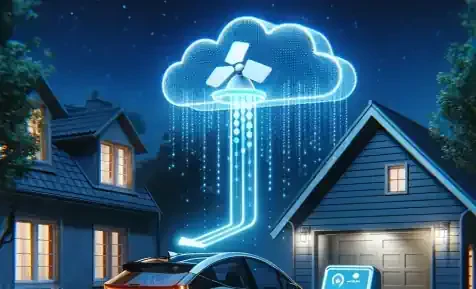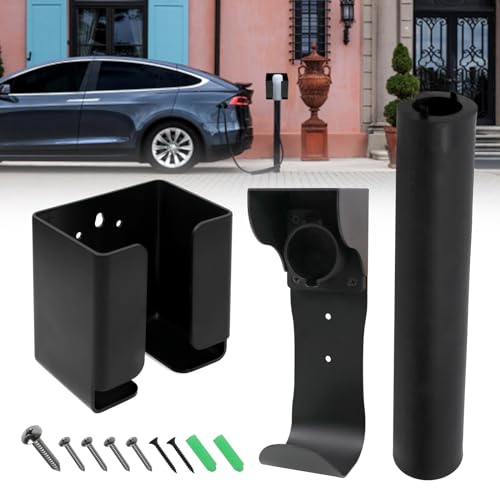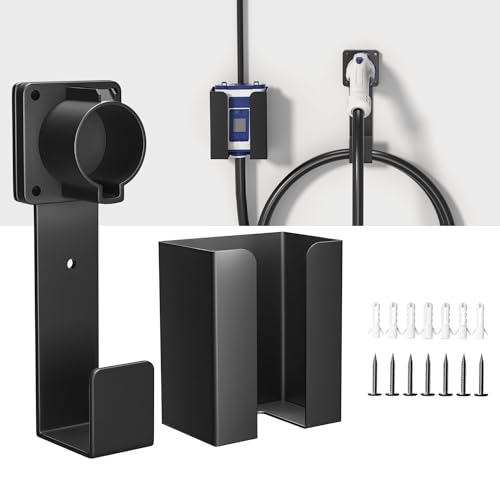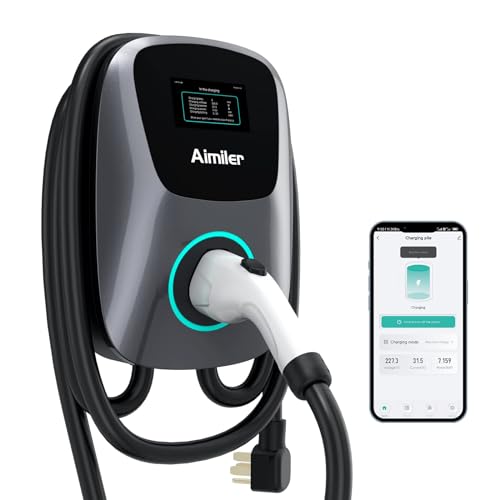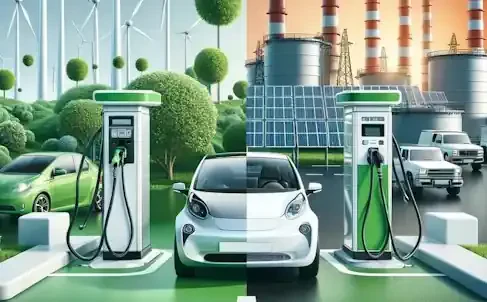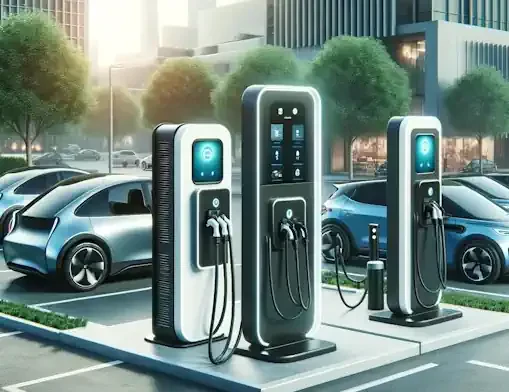Introduction
The global transition towards sustainable transportation has been gaining momentum, with electric vehicles (EVs) emerging as a pivotal solution to reduce greenhouse gas emissions and combat climate change. As governments worldwide implement stricter emissions regulations and consumers become increasingly environmentally conscious, the adoption of EVs has seen a remarkable surge.
In recent years, the automotive industry has witnessed a proliferation of EV models from major manufacturers, offering a diverse range of options to cater to different consumer needs and preferences. From compact city cars to luxury SUVs, the EV market is expanding rapidly, driven by advancements in battery technology, increased driving range, and growing infrastructure support.
Amidst this transformative landscape, the need for efficient and convenient charging solutions has become paramount. Traditional electric vehicle chargers have served as the backbone of EV infrastructure, offering reliable power delivery for drivers to recharge their vehicles. However, with the rise of smart technologies and the Internet of Things (IoT), a new generation of EV chargers has emerged – Wi-Fi enabled electric vehicle chargers.
These innovative chargers leverage Wi-Fi connectivity to offer enhanced functionality and convenience, revolutionizing the way drivers interact with their charging stations. By enabling remote monitoring, control, and integration with smart home systems, Wi-Fi enabled chargers represent the next evolution in EV charging technology.
In this article, we will delve deeper into the world of Wi-Fi enabled electric vehicle chargers, exploring their functionality, benefits, considerations for consumers, and future trends. From understanding how Wi-Fi connectivity enhances the charging experience to examining real-world examples and emerging technologies, we aim to provide a comprehensive overview of this cutting-edge technology and its implications for the future of electric transportation.
Understanding Wi-Fi Enabled Electric Vehicle Chargers
Definition and Basic Functionality
Wi-Fi enabled electric vehicle chargers represent a significant advancement in EV charging technology, integrating wireless connectivity to offer enhanced features and capabilities. At their core, these chargers function similarly to traditional electric vehicle chargers, providing a means to replenish the battery of an EV. However, the addition of Wi-Fi connectivity introduces a host of new functionalities that optimize the charging experience for users.
Wi-Fi enabled chargers typically consist of a physical charging station equipped with Wi-Fi capabilities and communication modules. These chargers connect to a Wi-Fi network, allowing them to communicate with other devices, such as smartphones, tablets, and home automation systems. This connectivity enables remote monitoring, control, and data exchange, empowering users with greater flexibility and convenience.
How Wi-Fi Connectivity Enhances Charging Experience
The integration of Wi-Fi connectivity into electric vehicle chargers offers several key benefits that enhance the overall charging experience:
Remote Monitoring and Control: With Wi-Fi enabled chargers, users can remotely monitor the status of their charging sessions in real-time through dedicated smartphone apps or web interfaces. This capability provides peace of mind, allowing users to check the progress of their charging sessions from anywhere, ensuring that their EV is ready when needed.
Customizable Charging Schedules: Wi-Fi enabled chargers often feature advanced scheduling functionalities, allowing users to set specific charging times to take advantage of off-peak electricity rates or optimize charging during periods of renewable energy generation. This flexibility enables users to tailor their charging routines to suit their preferences and lifestyle.
Integration with Smart Home Systems: Wi-Fi enabled chargers can seamlessly integrate with smart home systems, enabling automated interactions and coordination with other connected devices. For example, chargers can communicate with smart thermostats to adjust energy usage based on home energy demand or integrate with home automation platforms to trigger charging based on predefined conditions or events.
Comparison with Traditional Chargers
In comparison to traditional electric vehicle chargers, Wi-Fi enabled chargers offer several distinct advantages:
Enhanced Connectivity: Wi-Fi enabled chargers provide users with greater connectivity and accessibility, allowing for remote monitoring and control from anywhere with an internet connection. This connectivity enables users to stay informed about their charging status and make adjustments as needed, improving convenience and user experience.
Advanced Features: Wi-Fi enabled chargers often come equipped with advanced features such as scheduling, energy management, and integration with smart home systems. These features empower users with greater control over their charging experience, enabling them to optimize energy usage, reduce costs, and minimize environmental impact.
Future-Proofing: Wi-Fi enabled chargers are designed to adapt to evolving technologies and standards, ensuring compatibility with future advancements in electric vehicle technology and infrastructure. This future-proofing capability provides users with confidence that their charging solution will remain relevant and functional as the EV landscape continues to evolve.
In summary, Wi-Fi enabled electric vehicle chargers represent a significant advancement in EV charging technology, offering enhanced functionality, convenience, and flexibility compared to traditional chargers. By leveraging Wi-Fi connectivity, these chargers empower users with greater control over their charging experience, ultimately contributing to the widespread adoption and sustainability of electric transportation.
Benefits of Wi-Fi Enabled Electric Vehicle Chargers
Wi-Fi enabled electric vehicle chargers offer a multitude of advantages over traditional chargers, revolutionizing the way users interact with their charging stations. Here are some key benefits:
Remote Monitoring and Control Capabilities
One of the primary advantages of Wi-Fi enabled electric vehicle chargers is the ability to remotely monitor and control charging sessions. Through dedicated smartphone apps or web interfaces, users can conveniently check the status of their charging sessions in real-time from anywhere with an internet connection. This feature provides peace of mind, allowing users to stay informed about their EV's charging progress and receive notifications when charging is complete or interrupted. Additionally, remote control capabilities enable users to start, stop, or schedule charging sessions remotely, offering greater flexibility and convenience.
Enhanced User Experience and Convenience
Wi-Fi enabled chargers significantly enhance the overall user experience by providing greater convenience and accessibility. With remote monitoring and control capabilities, users no longer need to be physically present at the charging station to check on their EV's charging status or adjust charging settings. This convenience allows users to better integrate EV charging into their daily routines and eliminates the need for unnecessary trips to the charging station. Furthermore, features such as personalized charging schedules and notifications further enhance user convenience, ensuring that charging sessions are tailored to individual preferences and requirements.
Integration with Smart Home Systems
Wi-Fi enabled electric vehicle chargers seamlessly integrate with smart home systems, enabling enhanced automation and coordination with other connected devices. By leveraging existing smart home infrastructure, such as smart thermostats, energy monitors, and renewable energy sources, users can optimize their charging experience and minimize energy costs. For example, chargers can coordinate charging sessions with off-peak electricity rates or adjust charging power based on home energy demand, maximizing efficiency and reducing environmental impact. This integration enables a more intelligent and sustainable approach to EV charging, aligning with the broader goals of smart home technology.
Potential Cost Savings Through Optimized Charging Schedules
Another significant benefit of Wi-Fi enabled chargers is the potential for cost savings through optimized charging schedules. By leveraging scheduling features and taking advantage of off-peak electricity rates, users can reduce their overall charging costs and minimize their environmental footprint. Additionally, integration with renewable energy sources, such as solar panels or wind turbines, enables users to further reduce their reliance on grid electricity and potentially achieve energy independence. By optimizing charging schedules based on energy availability and cost, users can maximize the value of their EV investment and contribute to a more sustainable energy future.
In summary, Wi-Fi enabled electric vehicle chargers offer a range of benefits that enhance the user experience, improve convenience, and optimize charging efficiency. From remote monitoring and control capabilities to integration with smart home systems and potential cost savings through optimized charging schedules, these chargers represent a significant advancement in EV charging technology, empowering users with greater control and flexibility over their charging experience.
Exploring Key Features
Wi-Fi enabled electric vehicle chargers come equipped with a range of advanced features that optimize the charging experience for users. Let's explore some of the key features in detail:
Remote Access via Smartphone Apps or Web Interfaces
Wi-Fi enabled chargers allow users to access and control their charging stations remotely through dedicated smartphone apps or web interfaces. This feature provides unparalleled convenience, allowing users to monitor and manage their charging sessions from anywhere with an internet connection. Whether at home, work, or on the go, users can check the status of their EV's charging, start or stop charging sessions, and adjust charging settings with ease. Remote access via smartphone apps or web interfaces ensures that users remain connected to their charging stations at all times, enhancing peace of mind and flexibility.
Real-time Monitoring of Charging Status and Energy Consumption
Another key feature of Wi-Fi enabled chargers is the ability to monitor charging status and energy consumption in real-time. Through intuitive interfaces and visual displays, users can track the progress of their charging sessions, monitor energy usage, and access historical charging data for analysis. This real-time monitoring capability provides valuable insights into charging behavior and allows users to make informed decisions to optimize their charging experience. By staying informed about charging status and energy consumption, users can effectively manage their EV's charging needs and maximize efficiency.
Customizable Charging Schedules and Notifications
Wi-Fi enabled chargers offer customizable charging schedules and notifications, allowing users to tailor their charging experience to suit their preferences and lifestyle. With scheduling features, users can set specific times for charging to take advantage of off-peak electricity rates or align charging with periods of renewable energy generation. Additionally, users can receive notifications when charging sessions start, stop, or reach predefined milestones, keeping them informed and updated throughout the charging process. Customizable charging schedules and notifications empower users with greater control over their EV's charging, ensuring that charging sessions are optimized for efficiency and convenience.
Integration with Energy Management Systems and Renewable Energy Sources
Wi-Fi enabled chargers seamlessly integrate with energy management systems and renewable energy sources, enabling users to maximize the sustainability and efficiency of their charging infrastructure. By connecting to home energy monitors, smart meters, and renewable energy systems such as solar panels or wind turbines, chargers can adjust charging power based on available energy resources and demand. This integration enables users to optimize their charging behavior to minimize environmental impact, reduce electricity costs, and promote energy independence. By leveraging renewable energy sources and energy management systems, users can align their EV charging with their broader sustainability goals and contribute to a cleaner, greener future.
In summary, Wi-Fi enabled electric vehicle chargers offer a range of key features that enhance user convenience, provide valuable insights into charging behavior, and promote sustainability. From remote access via smartphone apps or web interfaces to real-time monitoring of charging status and energy consumption, customizable charging schedules, and integration with energy management systems and renewable energy sources, these chargers empower users with greater control over their EV charging experience, ultimately contributing to a more sustainable and efficient transportation ecosystem.
Considerations for Consumers
When choosing a Wi-Fi enabled electric vehicle charger, there are several important considerations that consumers should keep in mind to ensure they select the right charging solution for their needs. Let's explore these considerations in detail:
Compatibility with Different EV Models
One of the primary considerations for consumers is the compatibility of the Wi-Fi enabled charger with their specific electric vehicle model. While most chargers are designed to be compatible with a wide range of EVs, it's essential to verify that the charger supports the charging standards and connector types required by your vehicle. Additionally, some EV manufacturers may offer recommendations or certifications for compatible charging equipment, so be sure to check with your vehicle manufacturer for guidance.
Security and Privacy Concerns
With the integration of Wi-Fi connectivity, consumers should also consider security and privacy implications when selecting a Wi-Fi enabled charger. It's crucial to choose a charger from a reputable manufacturer that prioritizes cybersecurity and employs robust encryption protocols to protect user data and prevent unauthorized access. Additionally, consumers should follow best practices for securing their home Wi-Fi network and regularly update firmware and software to mitigate security risks.
Installation Requirements and Considerations
Another important consideration is the installation requirements and considerations associated with the Wi-Fi enabled charger. Consumers should assess their home's electrical infrastructure to ensure it can support the charger's power requirements and determine the optimal location for installation. Additionally, consumers may need to consider factors such as weatherproofing, accessibility, and compliance with local building codes and regulations. Depending on the complexity of the installation, consumers may choose to hire a qualified electrician to install the charger safely and correctly.
Cost Implications Compared to Traditional Chargers
Finally, consumers should evaluate the cost implications of choosing a Wi-Fi enabled electric vehicle charger compared to traditional chargers. While Wi-Fi enabled chargers offer enhanced functionality and convenience, they may also come with a higher upfront cost due to the added technology and features. Consumers should weigh the benefits of Wi-Fi connectivity against the additional expense and consider factors such as long-term savings from optimized charging schedules, potential incentives or rebates, and the overall value proposition of the charger. Additionally, consumers should factor in ongoing costs such as energy consumption and maintenance when assessing the total cost of ownership.
By carefully considering these factors, consumers can make informed decisions when selecting a Wi-Fi enabled electric vehicle charger that meets their needs, preferences, and budget. By choosing a charger that offers compatibility with their EV model, prioritizes security and privacy, meets installation requirements, and provides a favorable cost-benefit ratio, consumers can enjoy the benefits of enhanced charging capabilities while maximizing their overall EV ownership experience.
Case Studies and Examples
Incorporating real-world examples and success stories of Wi-Fi enabled electric vehicle (EV) chargers can provide valuable insights into their functionality, benefits, and implementation. Let's explore some notable case studies and examples:
Real-World Examples of Wi-Fi Enabled EV Chargers in Use
Example 1: ChargePoint Home Flex
ChargePoint, a leading provider of EV charging solutions, offers the ChargePoint Home Flex, a Wi-Fi enabled EV charger designed for residential use. This charger allows homeowners to conveniently monitor and control their charging sessions remotely using the ChargePoint mobile app. With features such as real-time charging status updates, customizable scheduling, and integration with smart home systems, the ChargePoint Home Flex provides homeowners with a seamless and intuitive charging experience.
Example 2: JuiceBox Pro 40
JuiceBox, another prominent player in the EV charging market, offers the JuiceBox Pro 40, a Wi-Fi enabled EV charger known for its advanced features and user-friendly interface. The JuiceBox Pro 40 allows users to remotely monitor charging status, track energy consumption, and adjust charging settings using the JuiceNet mobile app or web portal. With support for customizable charging schedules and integration with energy management systems, the JuiceBox Pro 40 enables users to optimize their charging experience while minimizing costs and environmental impact.
Success Stories Highlighting the Benefits and Functionality
Success Story 1: Increased Convenience and Peace of Mind
A homeowner installs a Wi-Fi enabled EV charger in their garage and integrates it with their smart home system. With remote monitoring and control capabilities, the homeowner can easily check the status of their EV's charging, start or stop charging sessions, and receive notifications when charging is complete. The seamless integration with their smart home system allows the charger to coordinate charging with other devices, optimizing energy usage and minimizing costs. As a result, the homeowner enjoys increased convenience, peace of mind, and savings on their electricity bills.
Success Story 2: Enhanced Sustainability and Efficiency
A commercial property owner installs Wi-Fi enabled EV chargers in their parking lot to support employees and visitors with electric vehicles. By integrating the chargers with renewable energy sources such as solar panels, the property owner maximizes the sustainability of their charging infrastructure while reducing reliance on grid electricity. With features such as real-time monitoring of energy consumption and customizable charging schedules, the property owner can effectively manage charging demand and minimize environmental impact. As a result, the property owner demonstrates a commitment to sustainability, attracts environmentally conscious tenants, and sets a positive example for others in the community.
Lessons Learned and Best Practices for Implementation
Lesson Learned: Prioritize Security and Privacy
When implementing Wi-Fi enabled EV chargers, it's essential to prioritize security and privacy to protect user data and prevent unauthorized access. This includes choosing chargers from reputable manufacturers with robust cybersecurity measures, regularly updating firmware and software to address vulnerabilities, and following best practices for securing home Wi-Fi networks.
Best Practice: Conduct Thorough Site Assessment
Before installing Wi-Fi enabled EV chargers, it's crucial to conduct a thorough site assessment to evaluate factors such as electrical infrastructure, accessibility, and compliance with local regulations. This assessment ensures that the installation is carried out safely, efficiently, and in accordance with industry standards.
In summary, real-world examples and success stories of Wi-Fi enabled EV chargers highlight their functionality, benefits, and implementation considerations. By learning from these examples and adhering to best practices, consumers and businesses can maximize the value of Wi-Fi enabled EV chargers while promoting sustainability and efficiency in electric transportation.
Future Trends and Developments
As technology continues to evolve, the landscape of electric vehicle (EV) charging is poised for significant advancements. Here are some future trends and developments to watch out for in Wi-Fi enabled EV chargers:
Emerging Technologies in Wi-Fi Enabled EV Chargers
Wireless Charging: While Wi-Fi enabled chargers already offer wireless connectivity for monitoring and control, future developments may see the integration of wireless charging capabilities. Wireless charging technology eliminates the need for physical connectors, allowing EVs to charge simply by parking over a designated charging pad. This technology could revolutionize the EV charging experience, offering greater convenience and accessibility for users.
Vehicle-to-Grid (V2G) Integration: V2G technology enables bidirectional energy flow between EVs and the electrical grid, allowing EV batteries to serve as storage devices and provide power back to the grid when needed. Wi-Fi enabled chargers could play a crucial role in enabling V2G integration by facilitating communication and coordination between EVs and the grid. This technology has the potential to transform EVs into flexible energy assets, contributing to grid stability and supporting renewable energy integration.
Dynamic Load Management: Advanced load management capabilities could enable Wi-Fi enabled chargers to dynamically adjust charging power based on grid conditions, energy demand, and pricing signals. By intelligently managing charging loads, these chargers can optimize energy usage, reduce grid congestion, and minimize costs for users. Machine learning algorithms and predictive analytics could further enhance load management capabilities, enabling chargers to anticipate user behavior and adapt accordingly.
Potential Advancements in Connectivity and User Experience
5G Connectivity: The rollout of 5G networks promises to deliver faster speeds, lower latency, and greater reliability, providing an ideal platform for connectivity-intensive applications such as Wi-Fi enabled EV chargers. With 5G connectivity, chargers can offer seamless communication and real-time data exchange, enhancing user experience and enabling advanced functionalities such as augmented reality (AR) interfaces and remote diagnostics.
Enhanced User Interfaces: Future Wi-Fi enabled chargers may feature advanced user interfaces with intuitive touchscreen displays, voice recognition capabilities, and personalized user profiles. These interfaces can offer interactive guidance, predictive recommendations, and personalized feedback to enhance user engagement and satisfaction. Integration with smart assistants and virtual reality (VR) technologies could further enhance the user experience and simplify interaction with the charging station.
Blockchain Technology: Blockchain technology holds the potential to revolutionize the EV charging ecosystem by enabling secure, transparent, and decentralized transactions. Wi-Fi enabled chargers could leverage blockchain technology to facilitate peer-to-peer energy trading, enable seamless roaming between charging networks, and ensure trust and integrity in transaction records. By incorporating blockchain-based solutions, chargers can enhance security, interoperability, and scalability in the EV charging infrastructure.
Implications for the Future of Electric Vehicle Charging Infrastructure
Scalability and Interoperability: As the adoption of EVs continues to grow, scalability and interoperability will become critical considerations for EV charging infrastructure. Wi-Fi enabled chargers must be designed to scale efficiently and accommodate increasing demand while maintaining interoperability with existing and future EV models, charging standards, and grid infrastructure.
Grid Integration and Smart Grid Solutions: Wi-Fi enabled chargers will play an integral role in the transition to a smart grid infrastructure, facilitating seamless integration with renewable energy sources, energy storage systems, and demand response programs. By enabling communication and coordination between EVs, chargers, and the grid, these technologies can optimize energy usage, enhance grid stability, and support the transition to a more sustainable energy future.
Policy and Regulatory Considerations: Policymakers and regulators will need to address a range of policy and regulatory considerations to support the widespread deployment and adoption of Wi-Fi enabled EV chargers. This includes establishing standards for interoperability, cybersecurity, data privacy, and consumer protection, as well as providing incentives and funding mechanisms to incentivize investment in charging infrastructure.
In conclusion, the future of Wi-Fi enabled EV chargers holds tremendous promise, with emerging technologies, advancements in connectivity, and implications for the future of electric vehicle charging infrastructure. By embracing these trends and developments, stakeholders can unlock new opportunities to accelerate the adoption of EVs, promote sustainability, and reshape the way we power transportation.
Aimiler Smart EV Charger | Level 2, 48A
High-Powered Electric Vehicle Charger with Advanced Smart Features for Efficient Charging
Product information
$300.00
Product Review Score
4.24 out of 5 stars
136 reviews